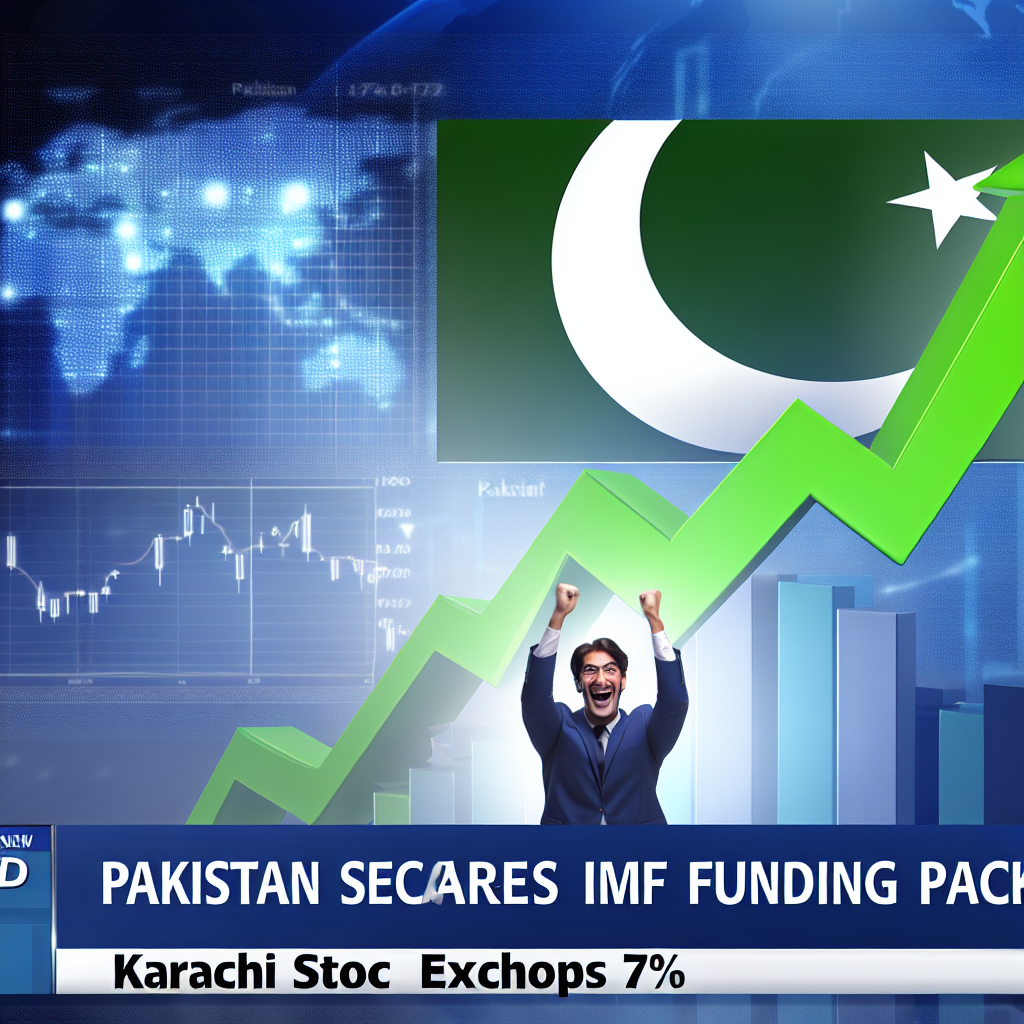Pakistan Secures IMF Funding Package: A Turning Point for Economic Stability
In a significant development for Pakistan’s economy, the country has successfully secured a funding package from the International Monetary Fund (IMF). This move is expected to provide much-needed financial support to stabilize the economy, which has been grappling with various challenges, including high inflation, a depreciating currency, and dwindling foreign reserves. Following the announcement, the Karachi Stock Exchange (KSE) experienced a remarkable surge, jumping by 7%, reflecting investor optimism and renewed confidence in the market.
The Context of the IMF Deal
The IMF funding package comes at a critical juncture for Pakistan, which has faced economic turmoil exacerbated by global economic conditions and domestic policy challenges. The country has been in negotiations with the IMF for several months, seeking to secure a bailout to address its fiscal deficits and restore economic stability. The deal is part of a broader strategy to implement structural reforms aimed at enhancing economic resilience.
- High Inflation Rates: Pakistan has been experiencing inflation rates exceeding 20%, significantly impacting the purchasing power of its citizens.
- Currency Depreciation: The Pakistani Rupee has seen a sharp decline against major currencies, leading to increased costs for imports.
- Foreign Reserves: The country’s foreign reserves have dwindled to alarming levels, necessitating urgent financial assistance.
Impact on the Karachi Stock Exchange
The announcement of the IMF funding package had an immediate and positive impact on the Karachi Stock Exchange. The KSE-100 index surged by 7%, marking one of its most significant single-day gains in recent months. This rally can be attributed to several factors:
- Investor Confidence: The IMF deal has restored confidence among investors, who view it as a sign of economic stability and potential growth.
- Increased Foreign Investment: With the backing of the IMF, Pakistan is likely to attract more foreign direct investment, further boosting market performance.
- Sectoral Gains: Key sectors such as banking, energy, and consumer goods saw substantial gains, reflecting optimism about future profitability.
Challenges Ahead
While the IMF funding package is a positive development, it is essential to recognize the challenges that lie ahead for Pakistan. The government must implement stringent economic reforms to ensure the effectiveness of the funding. Some of the critical challenges include:
- Fiscal Discipline: The government needs to maintain fiscal discipline and avoid excessive borrowing to ensure long-term sustainability.
- Structural Reforms: Implementing necessary structural reforms in taxation, energy, and public sector enterprises is crucial for economic recovery.
- Political Stability: Political stability is vital for the successful implementation of reforms and to maintain investor confidence.
Case Studies: Lessons from Other Nations
Pakistan can draw valuable lessons from other countries that have successfully navigated similar economic challenges with the help of IMF funding. For instance:
- Argentina: After securing an IMF package, Argentina implemented significant economic reforms that stabilized its economy, although political challenges persisted.
- Greece: Greece’s experience with the IMF highlighted the importance of structural reforms and fiscal discipline, which ultimately led to economic recovery.
Conclusion: A Path Forward for Pakistan
The successful negotiation of the IMF funding package marks a pivotal moment for Pakistan’s economy. While the immediate effects on the Karachi Stock Exchange are promising, the real test lies in the government’s ability to implement necessary reforms and maintain economic stability. The journey ahead will require commitment, transparency, and collaboration among all stakeholders to ensure that the benefits of this funding translate into sustainable economic growth. As Pakistan navigates this critical phase, the international community will be watching closely, hoping for a successful turnaround that can serve as a model for other nations facing similar challenges.





